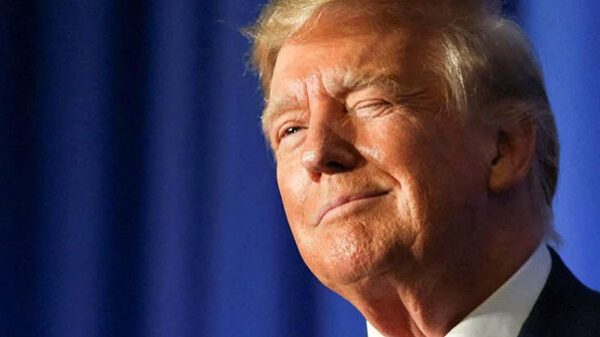Trump’s Second Act Exploring the Possibility of Reelection Despite Conviction
Former US President Donald Trump has been indicted for the third time by prosecutors investigating his role in the overturning of the 2020 election and his alleged instigation of supporters to storm Capitol Hill as he faced defeat to incumbent President Joe Biden.
Special Counsel Jack Smith is overseeing the investigations into Trump, who characterized the January 6 incident as an “unprecedented assault on American democracy.”
Amidst these developments, questions arise regarding the potential scenarios if Donald Trump were to win the presidential election. Experts assert that he could assume the presidency even if indicted.
Law professor Richard L Hasen from the University of California Los Angeles explained to CNN that, while the Constitution outlines minimal requirements for the presidency, such as a minimum age of 35, there is no explicit prohibition against a candidate who is indicted, convicted, or even serving jail time running for and winning the presidency. Hasen, an election law expert, noted that the issue of serving as president from prison remains untested.
The question also arises whether Donald Trump could pardon himself if reelected. The indictment lists charges including conspiracy to defraud the US, obstruction of an official proceeding, and conspiracy against rights. These are separate from the 40 counts being investigated by Special Counsel Smith related to mishandling classified documents and the 34 charges of falsifying business records tied to a payment made to adult film star Stormy Daniels.
Hasen suggested that if Trump were to win the election and be convicted prior to taking office, he could attempt to pardon himself. However, whether this is legally permissible remains untested, and the Supreme Court might have to weigh in on the matter.
Additionally, there is speculation about whether Trump could dismiss a Justice Department case against him. Special Counsel Smith indicated a desire for a speedy trial, but if Trump were to regain the presidency before a conviction, he might have the authority to dismiss the case.
Former President Trump’s potential ability to vote if convicted also comes into question. A felony conviction at the federal level or in New York could bar him from voting, at least until any potential sentence is served.
As these legal proceedings unfold, Trump’s actions and their implications for his political future continue to be closely watched.








